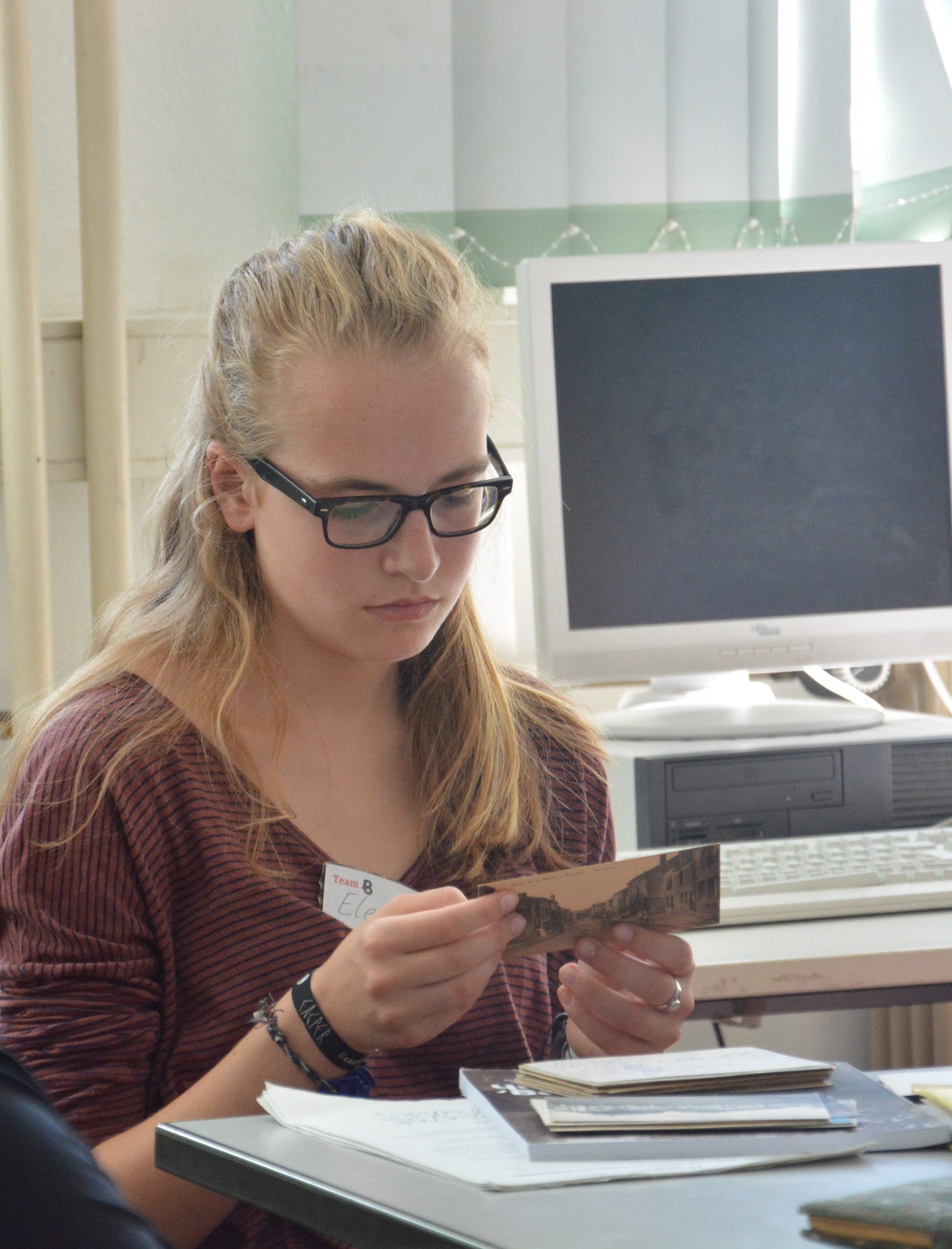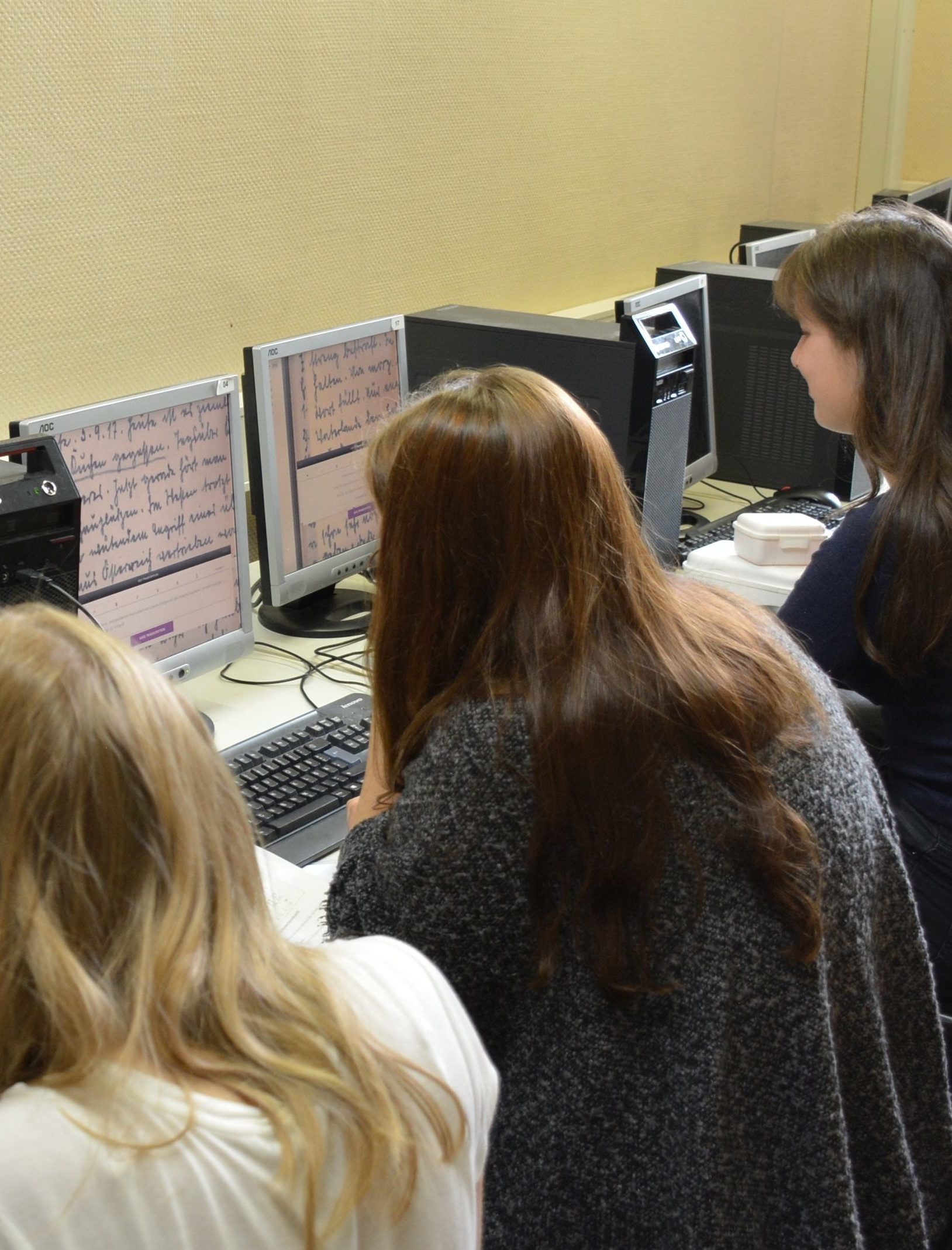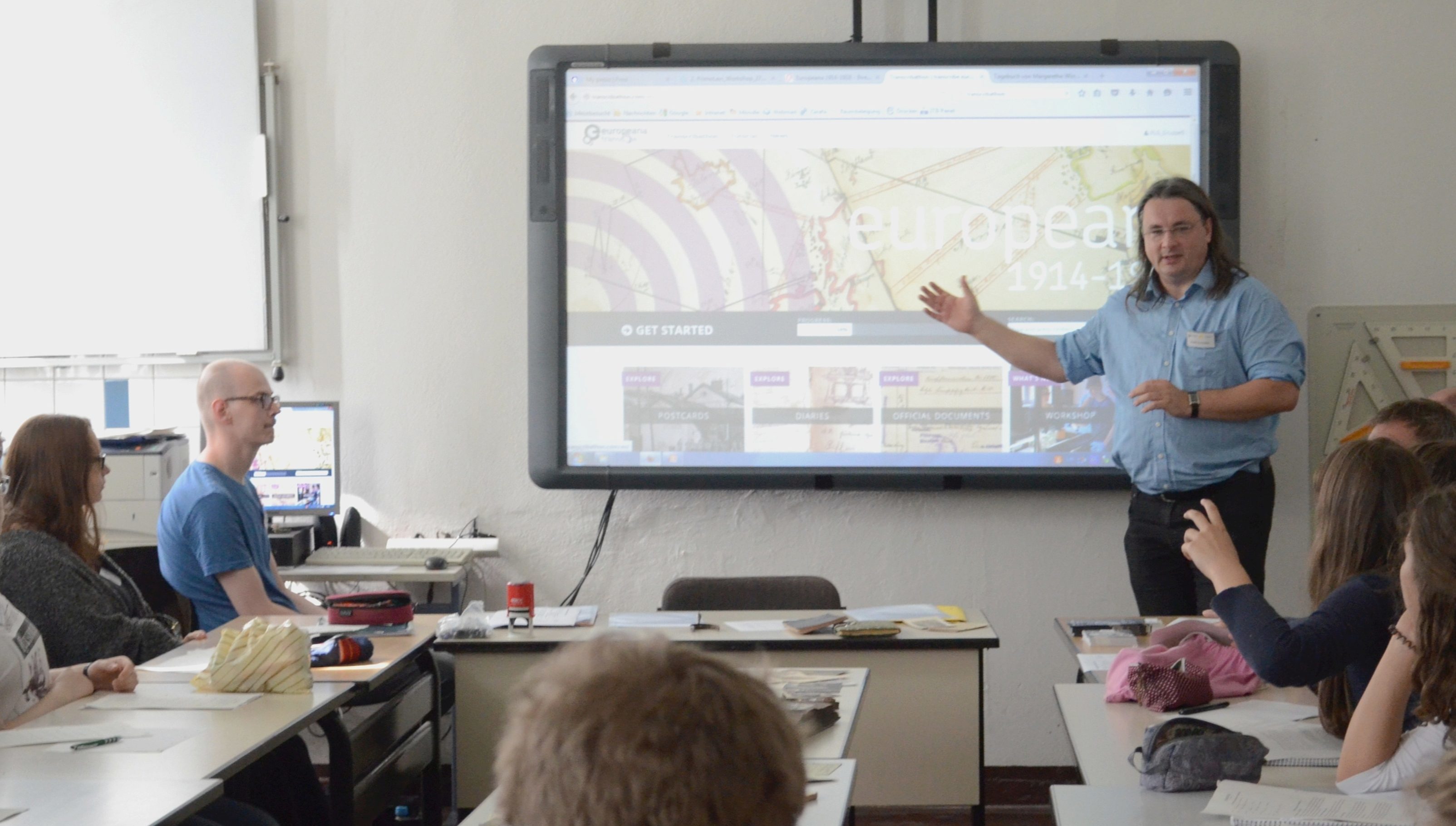Welcome to Transcribathon for Education!
We want to make it easy for you to use the Transcribathon tool in education and to fully exploit the educational potential of Europeana.
Europeana 1914-1918 is a unique digital archive of the First World War. It brings together thousands of personal stories, letters, diaries, and objects that give us an insight into lived experiences across Europe during the war. This is the history you can’t find in textbooks.
There are many ways to use the tool in various educational settings, from secondary to university level. Students can work either individually or in teams. You can choose from a large variety of handwritten texts in many different languages. This can be anything from letters to poetry, diary entries to postcards.
You can use these documents in the context or the subject of your choice. This could be, for example, in History (related to WW1 and national/ regional history), specific language classes, or in Civic, Social and Political Education programs.
A more competitive element can be added to the classes by setting up a Transcribathon.
Get Involved!
The Transcribathon tool is free to use.
You can set up a Transcribathon in your class or your school, or even in ‘competition’ with other schools.
You can get connected with even more local history by involving your local museum, gallery, library, or archive. Email us at team@transcribathon.eu
Benefits for participants
- Students will have a way to connect closer with the history of those speaking their language during a war that shaped Europe.
- Participants will learn how to read old handwriting and transcribe documents from the past, type this information into a digital record, and add metadata (like location) that will allow future researchers and students to more easily find and learn from our history.
- Students can measure their progress as a group and against participants from all over the world.
- Development of communication skills through delivering presentations and inputting correct language. By finishing a transcription, students will also gain a sense of ownership and pride.
- The choice to work in a team or individually. Students will attain valuable teamwork skills, not only by transcribing with their classmates, but also with other volunteer transcribers across the world.


What can students learn from Transcribathon?
Berlin Transcribathon Campus, June 2017
Clara Röpke, Berlin (Germany) und Andreea Pop, Cluj (Romania)
1. Read the documentation describing the process and how to use the Transcribathon website
2. Decide on who will participate and how (e.g. individually or in teams)
4. Choose your documents and go!
What you need to know
- To transcribe means to take an old document and rewrite it in the same language but in an accessible, digital format.
- You do not need to translate the transcription you write (but this may be a useful exercise in language classes!)
- Europeana cannot be involved or help support individual events (e.g. in schools). However, you can still tell us that they are happening and how it goes.
- Europeana may organise national Transcribathon events. If you’re interested in organising such an event with us or with your Ministry of Education, get in touch.

How can I use Transcribathon in education?
Past examples
University of Linz History Course
During Summer Semester 2017, students from a Culture Studies course at the University of Linz, Austria used Transcribathon to enhance their learning of history.
Led by their teacher, historian Markus Wurzer, a group of 50 students signed up on the website and over the course of the semester, took part in the transcription of various war diaries. The students gained a wealth of knowledge about the real experiences of the war and a deeper understanding of the lives of those who experienced it.
Workshops at the Primo-Levi Gymnasium, Berlin
In July 2015 and June 2016, Facts & Files conducted a series of historical media workshops at the Primo-Levi Gymnasium in Berlin-Weißensee. The first of which taught the high-school students how to work with original historical documents. Students were guided through the digitisation and transcription processes of selected sources.
The second workshop in 2016 was based primarily on transcription, in which students divided themselves into teams and worked together to transcribe a particular source. After a long day of transcribing, they presented their results and summarised their experiences in front of their classmates. The best transcribers and presenters were awarded prizes.
Most of the images featured on this page are from these two workshops.
Handouts
Useful materials for students and teachers in the classroom
-
How to Use the WebsiteFor Students
-
Checklist for Annotating DocumentsFor Students
-
Create a Class TeamFor Teachers
-
Powerpoint Template for Presentation of ResultsFor Teams